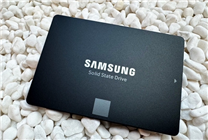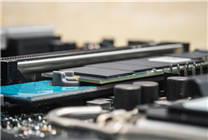The Risks of Buying Second-Hand PC Accessories: A Cautionary Guide
Summary:
- Purchasing second-hand PC accessories is possible, but caution is paramount.
- Low prices, especially for high-capacity solid-state drives (SSDs), can indicate potential issues.
- Reliable identification and testing methods are crucial to avoid counterfeit products.
In today’s tech-driven world, the allure of purchasing second-hand PC accessories can be compelling—especially when attractive prices beckon. However, the question remains: Is it wise to invest in used gear? While the answer often lies in the specifics of the accessory, certain items, such as graphics cards and solid-state drives, require extra scrutiny.
The Dilemma of Second-Hand SSDs
Recently, inquiries have surged about purchasing second-hand 1TB solid-state drives priced below 200 yuan. This suspicion is justified: a mechanical hard drive of the same capacity typically retails starting at this price point, making such a deal suspiciously low.
For instance, the reputable Samsung 870 EVO SATA SSD, typically available for around 100 yuan when new, offers a stark contrast to these budget drives. With features like a seven-day no-reason return policy and a three-year warranty, it highlights that sometimes, the best deals come from trusted sellers.
The Temptation—and Risks—of Bargains
Many might feel inclined to seize what appears to be a golden opportunity, rationalizing that the worst-case scenario involves minor losses. However, caution is crucial. A real-life example highlights potential pitfalls: a buyer purchased a second-hand 2TB solid-state drive that claimed to be a Samsung model. Upon disassembly, the buyer discovered that it was a substandard PCB salvaged from a counterfeit TF card. Such experiences can lead to significant disappointment and loss of trust.
Recognizing Counterfeit Products
Before making a purchase—especially for high-stakes items like SSDs—consider these identification techniques to protect your investment:
-
Visual Inspection: Genuine drives typically have higher-quality manufacturing standards. Authentic products exhibit a sleek outer shell made from durable materials, whereas counterfeits often appear rough or low-end.
-
Label Examination: The product labels on genuine SSDs generally exhibit matte finishes with anti-tampering cracks, contrasting with the glaring reflections often found on counterfeit labels.
- Performance Testing: Before sealing the deal, benchmark the SSD’s read and write speeds. For example, while a counterfeit may offer performance akin to a low-speed TF card, authentic drives like the Samsung 870 EVO deliver exceptional speeds—over 500 MB/s in sequential reads.
The Power of Software
Additionally, using software like SAMSUNG Magician can demystify many concerns. This utility not only identifies Samsung SSDs but also provides comprehensive details such as serial numbers and product specifications. Authentic drives will readily display accurate model numbers and confirmations of their legitimacy.
Advice Against Low-Cost SSDs
Given the accompanying risks, prospective buyers should exercise caution when considering low-cost, high-capacity second-hand solid-state drives, especially from well-known brands. The chances of encountering counterfeit products are alarmingly high, and even legitimate drives may pose risks if they have been tampered with.
A Safer Choice
Ultimately, investing in a new, authentic product frequently offers greater peace of mind over concerns about reliability and functionality. The potential pitfalls of low-priced second-hand options far outweigh the savings, making it advisable to seek out trusted retailers and verified products.
In conclusion, while the market for second-hand PC accessories can be enticing, buyers must navigate this space with keen awareness and caution. By remaining vigilant, using reliable identification techniques, and opting for quality over price, you can protect your investments and ensure high-performance outcomes in your computing experience.









